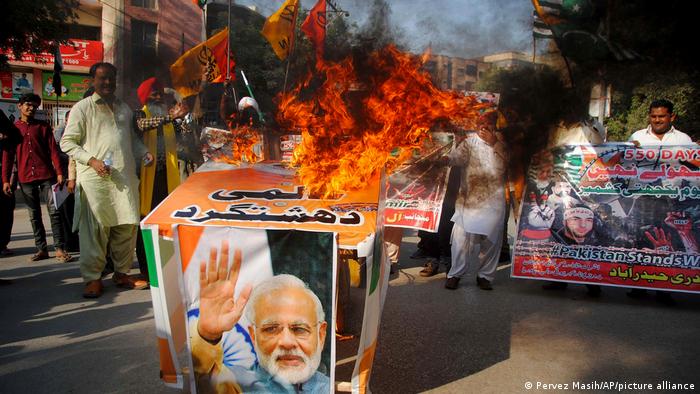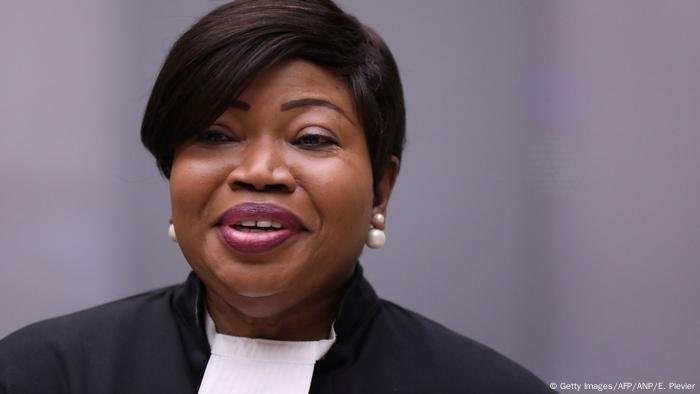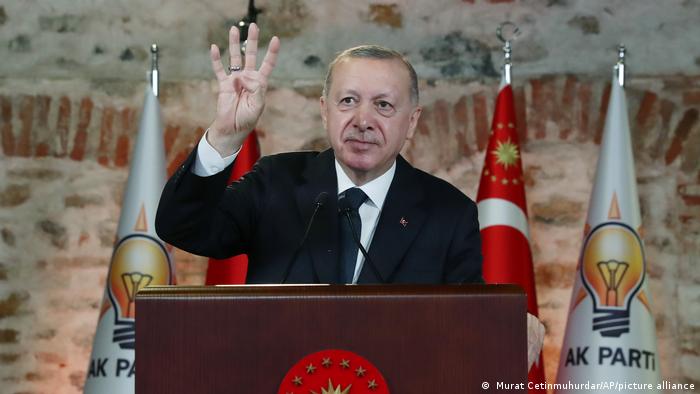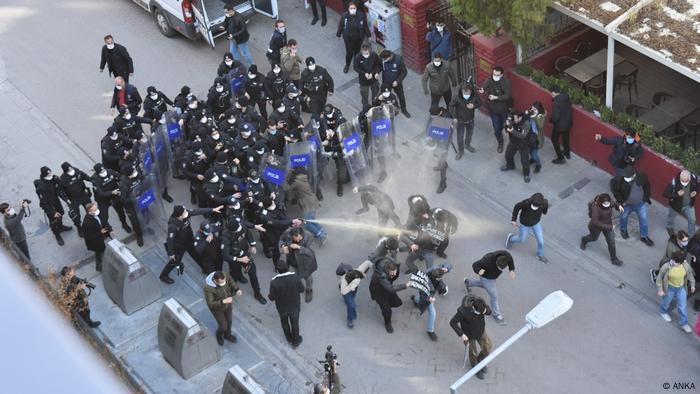AFRICA
Germany continues to deport Ethiopians despite Tigray crisis
German authorities sent asylum-seekers back to Ethiopia last year despite the challenges posed by the coronavirus pandemic and the Tigray conflict. Opposition politicians and human rights groups have condemned the move.
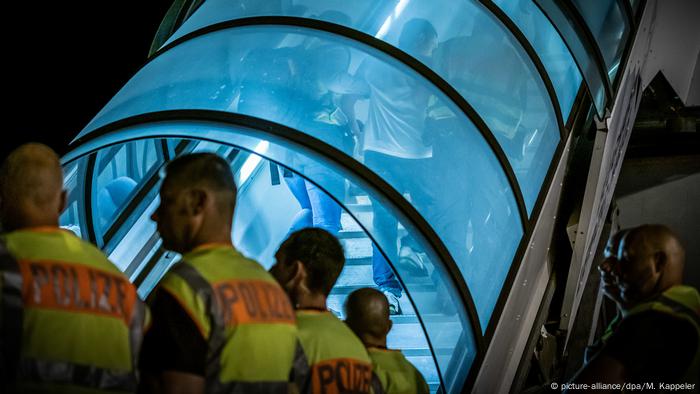
Deportations are likely to continue in 2021
December 28, 2020, was a day Mimi T. is not going to forget. All her hopes were dashed after she was forced on a flight back to Ethiopia with four German police officers in tow. According to advocacy groups, Mimi had come to Germany in 2009 after facing prosecution by the Ethiopian government for being an opposition member. She had also suffered from sexual abuse and arrest. In German, Mimi was treated for depression and post-traumatic stress disorder.
"She was in a dire psychological state and had tried to commit suicide while in detention pending deportation," Wiebke Judith, of German advocacy group ProAsyl, told DW. "In the end, she was dropped off in Addis Ababa in a wheelchair, still wearing her prison attire. She has no family there and didn't know anyone."
Germany defends deportations
Mimi T. wasn't the only asylum-seeker deported back to Ethiopia last year. In late November, 10 people were flown to Addis Ababa on a chartered Ethiopian Airlines flight.

Germany chartered an Ethiopian Airlines to deport 10 Ethiopian asylum-seekers in November 2020
The German government says that all legal provisions were followed. "The legal requirements for the admissibility of a deportation result from the Residence Act. Prohibitions of deportation are always examined on a case-by-case basis. For example, a foreigner should not be deported to another country if there is a considerable, concrete danger to life, physical well-being or freedom," a spokeswoman for Germany's Interior Ministry told DW in a written statement.
But critics disagree. "Ethiopia is a country affected by civil war, flooding, the coronavirus pandemic, and a locust plague. There is no sign that the conditions will improve soon. Deporting people there in such a situation is not only unacceptable but also inhuman", Ulla Jelpke, a German Member of Parliament for the opposition Left party, told DW.
Tigray's dire humanitarian situation
The Tigray conflict escalated last November after the Ethiopian National Defense Force launched an offensive against the Tigray People's Liberation Front (TPLF) that administered the region. Several thousand people are believed to have died in the conflict. According to UN estimates, over two million are in desperate need of aid. Just recently, German Chancellor Angela Merkel urged Ethiopia's Prime Minister Abiy Ahmed to find a peaceful solution and to allow humanitarian aid to those in need. Ethnic tensions are also common in other parts of Ethiopia.
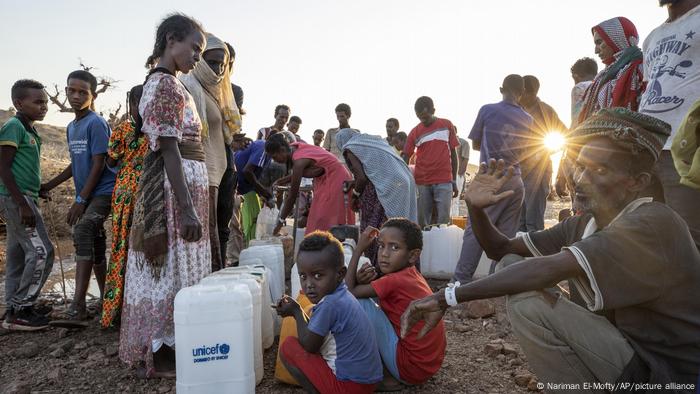
The Tigray conflict has worsened the humanitarian situation in the region
But that has not changed the German government's stance. "Deportations to Ethiopia through the relevant authorities in the [German] provinces are still possible," the home affairs spokeswoman wrote.
"They would argue that there are areas in Ethiopia that are safe, such as the capital. But that does not take into account that the situation could change quickly and that the whole region could be destabilized," Pro Asyl's Judith said.
A more rigorous approach to deportations
Figures released by the Interior Ministry following a written request by Jelpke show that German authorities have taken a more rigorous approach to asylum applications from Ethiopians in recent years.
In 2015, more than half of all applicants whose cases were determined were recognized as refugees or given some other form of protection. In 2019, that number was down to about 28%. Simultaneously, the number of applications dropped from a peak of 4,030 in 2016 to 1,054 in 2019.
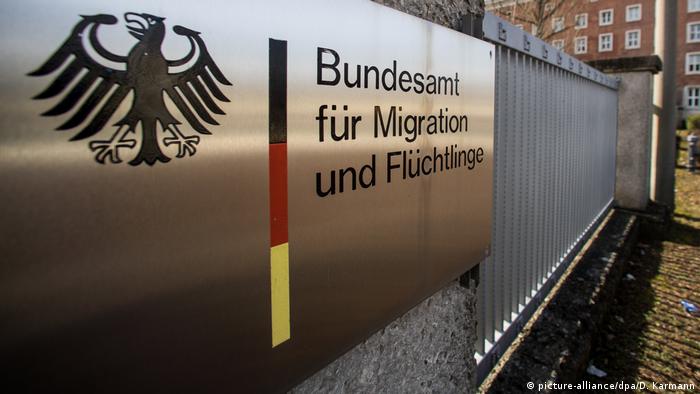
German authorities are said to have taken a more restrictive stance towards asylum applications
Deportations to Ethiopia seem to continue this year. "I am afraid that it is going to be that way. The federal government is incorrigible," Jelpke said. Advocacy groups claim that preparations are already underway. According to the Bayerischer Flüchtlingsrat, a pro-refugee lobby group in Germany's southern state of Bavaria, authorities are preparing to deport a 22-year-old.
The woman, only identified as Sara A., is said to be a heroin-addict and has committed various petty crimes. However, according to the information provided, Sara A. was born in Germany and has never been to Ethiopia. She only has Ethiopian nationality because her parents came from there.
VIDEO Germany continues to deport Ethiopians despite Tigray crisis
